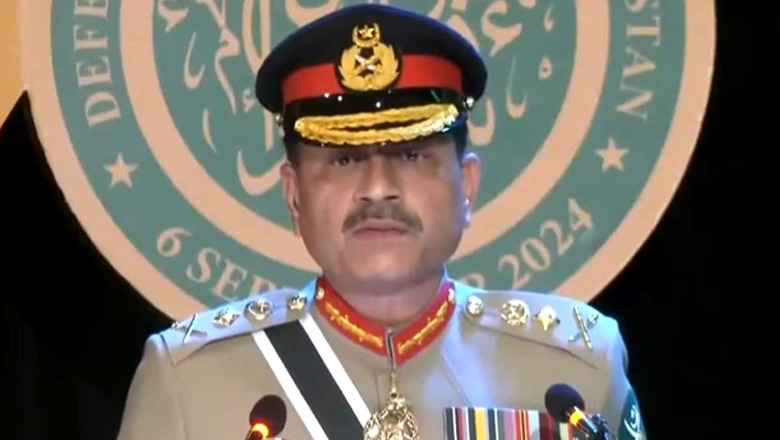
views
Twenty-five years after the 1999 Kargil War, the Pakistan Army has appeared to acknowledge its involvement in the deadly conflict with India for the first time. The apparent admission came from Pakistan Army Chief General Asim Munir during a Defence Day speech on Friday.
“In the 1948, 1965, 1971, and Kargil wars between India and Pakistan, as well as in Siachen, thousands have sacrificed themselves in these conflicts,” General Munir said during a speech at the Pakistan Army’s headquarters in Rawalpindi. The Kargil War, fought between May and July 1999, saw Pakistani troops infiltrate the Indian side of the Line of Control in J-K’s Kargil district. India, under ‘Operation Vijay,’ forced the intruders to withdraw from strategic posts.
First time ever #PakistaniArmy accepts involvement in #KargilWar. Pakistan Army Chief General #AsimMunir confirms Pakistan Army’s involvement in #KargilWar. Pakistan Army Chief General Asim Munir in a defence day speech on Friday said, “1948, 1965, 1971 or Kargil war between… pic.twitter.com/Um83MwSrwM— Upendrra Rai (@UpendrraRai) September 7, 2024
‘Kashmiri freedom fighters’ or ‘mujahideen’
In the past, Islamabad had consistently denied direct military involvement, referring to the infiltrators as “Kashmiri freedom fighters” or “mujahideen.” The Muslim-majority nation had also claimed that Pakistan forces were “actively patrolling” while “tribal leaders” occupied the heights. Islamabad’s apparent admission has caused a buzz on the social media platform X, with some journalists sharing decades-old posts about the Pakistan army’s refusal to accept the dead bodies of its personnel.
After 25 years, Pakistan Army accepts its direct involvement in Kargil War. A first, since so far, they claimed it was “Mujahideens”. Pakistan even refused to take even officers’ bodies: https://t.co/gfggSHOEv8 pic.twitter.com/DuUpjpjodd— Sidhant Sibal (@sidhant) September 7, 2024
Former Prime Minister Nawaz Sharif, who was in office during the Kargil War, has openly criticised the operation which is often dubbed as a strategic “blunder” by the Pakistani army. Lt Gen (retd) Shahid Aziz, a former Pakistani military officer, had previously acknowledged the role of their troops in Kargil after his retirement.
Aziz described the operation as a “four-man show,” known only to Gen. Pervez Musharraf and a few other top commanders. Nawaz Sharif, who signed the 1999 Lahore Declaration with former Prime Minister Atal Bihari Vajpayee, later admitted that Pakistan had violated the agreement through its actions in Kargil.




















Comments
0 comment